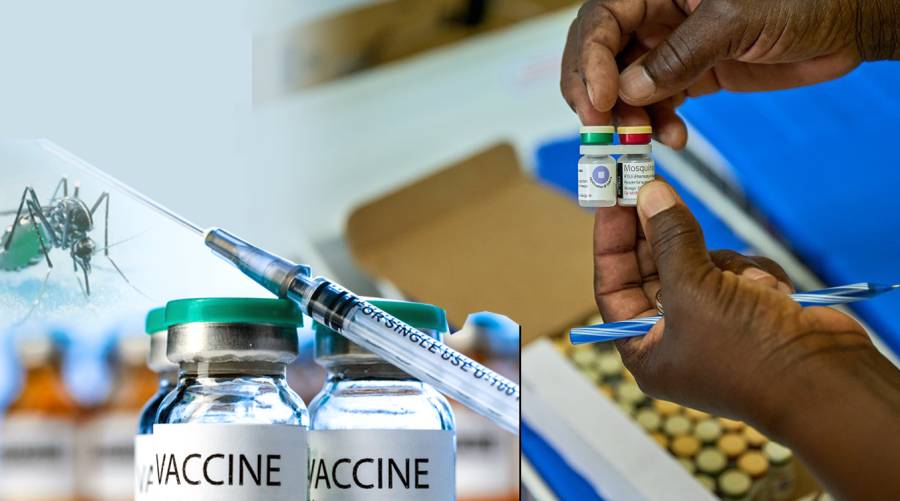Second malaria vaccine granted WHO prequalification

GENEVA: In an important development in the global effort to prevent malaria, the R21/Matrix-M vaccine has officially joined the ranks of WHO-prequalified vaccines, which was endorsed by the World Health Organization in October 2023 as a crucial measure for protecting children against malaria.
The decision aligns with the recommendations of the WHO Strategic Advisory Group of Experts (SAGE) on Immunization and the Malaria Policy Advisory Group.
Prequalification is an important step that enhances broader access to vaccines and serves as a prerequisite for vaccine procurement by Unicef and is accompanied by funding support for deployment from Gavi, the Vaccine Alliance.
This achievement represents the second malaria vaccine to receive WHO prequalification, with the RTS,S/AS01 vaccine attaining this status in July 2022.
Both vaccines have demonstrated their safety and efficacy through rigorous clinical trials, showing their effectiveness in preventing malaria in children. When implemented on a large scale alongside other recommended malaria control measures, these vaccines are expected to have a profound impact on public health.
Malaria, a mosquito-borne disease, disproportionately affects children in the African Region, where nearly half a million children succumb to the disease annually. Globally, in 2022, there were an estimated 249 million malaria cases and 608,000 malaria-related deaths across 85 countries.
The R21 vaccine, developed by Oxford University and manufactured by the Serum Institute of India, is poised to significantly expand access to malaria prevention through vaccination. Despite robust demand, limited supply has been a challenge.
With two WHO-recommended and prequalified malaria vaccines now available, the supply is expected to meet the high demand from African nations, promising sufficient vaccine doses to protect all children in malaria-endemic areas.
Dr Rogério Gaspar, Director of the Department of Regulation and Prequalification at WHO, emphasized the importance of WHO vaccine prequalification in ensuring the safety and effectiveness of vaccines within targeted health systems.
WHO continually assesses multiple products for prequalification, with the primary objective of expanding access to safe, effective, and high-quality health products.
Dr Kate O’Brien, Director of WHO's Department of Immunization, Vaccines, and Biologicals, underlined the commitment to eradicating malaria, which continues to inflict suffering and death upon children.
She termed it a step towards a healthier and more resilient future, offering protection to those who have long lived in fear of the devastating effects of malaria. Together with partners, WHO is steadfast in its pursuit of a malaria-free future, where every life is shielded from the threat of this disease, she added.
The prequalification process undertaken by WHO adheres to international standards, comprehensively evaluating vaccines for safety, efficacy, and adherence to global manufacturing standards.
WHO also ensures the ongoing safety and effectiveness of prequalified vaccines through activities such as regular re-evaluation, site inspections, and targeted testing. Prequalification aligns with the specific requirements of national immunization programmes, addressing vaccine characteristics such as potency, thermostability, presentation, labeling, and shipping conditions.
Trending
Popular
JSMU lauds Dr Waqas for research excellence
-
Revolutionary HIV drug can drastically ...
06:30 PM, 25 Jul, 2024 -
AI model to improve EEG reading for ICU ...
04:00 PM, 5 Jun, 2024 -
Study links weight-neutral eating ...
04:00 PM, 11 May, 2024 -
Researchers strive to expand telehealth ...
04:00 PM, 11 May, 2024




